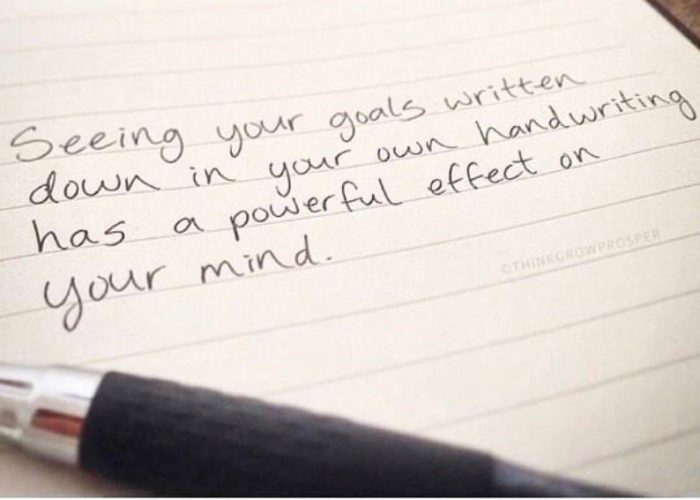5 Ways Journaling Helps Swimmers

By Courtney Mykkanen, Swimming World College Intern.
Swimmers are constantly facing ups and downs, whether at meets, practices or just in daily life. One way swimmers can reflect on these challenges in and out of the water is to write in a journal every day. Making journaling a habit can help develop mental toughness, increased self-awareness, and better outcomes throughout the many aspects of daily life. There is no right or wrong way to journal; it is all about finding what works best for you. Here are five ideas that swimmers might find useful to journal about.
1. Self-Reflection

Photo Courtesy: StockSnap.io
The concept of self-reflecting is crucial in understanding why things happen. For instance, if an individual is having a particularly good or bad season, a journal might be useful to help understand what was different from the previous seasons and what may have contributed towards the current experiences and outcomes. If you find that you are stuck and going the same times season after season then journaling might help you brainstorm new things to try or plan out what you should try differently. Some swimmers might find it helpful to write down each practice in their journal, or maybe just the total distance swam that day. Practice trends over time can help explain why a performance turned out the way it did. This also might be helpful with taper practices and seeing how it affects overall meet performance and with determining how much or how little taper you might need for the next big meet.
2. Thoughts and Emotions

Photo Courtesy: Annie Grevers
Looking beyond just the practices in the pool, swimmers can journal about what they have learned or what frustrated them to make sense of feelings and emotions. Keeping note of what you learned during that practice or throughout the day can help you better remember for the future. Feedback from your coach will not only increase your knowledge about the sport but also keep you focused on the areas that need work. Writing these down will remind you what is working well or not working well throughout training and competitions.
Acknowledging frustrating experiences and taking the time to write about it can help with re-framing future experiences to make them more positive. Noting how you felt that day – whether you feel extra tired or woke up in a bad mood – can explain why you were more easily frustrated than usual. Or if you were excited and ready to go for practice, it might show how your mood can affect your practice performance. Noticing how thoughts and emotions impact your swimming can help determine if there are outside distractions. Reducing these distractions can help lead to mental toughness.
3. Goal Setting

Photo Courtesy: Twitter, @chandanaroy24
Journaling can help swimmers keep track of their best times and set long-term and short-term goals. Writing down your goals and the steps needed to achieve those goals can help you maintain a focused mindset. Writing down best times achieved in practice can show progress over time and build confidence going into championship meets. Having these goals and the steps to reach those goals organized in a journal helps you to stay motivated and hold yourself accountable. Writing it down is just one part – more importantly is what you do in the water; that is where the corrections, improvements, and effort take place.
4. Diet Tracking

Photo Courtesy: Cary Bass-Deschenes
Other things swimmers can journal about might involve keeping track of their diet. This can help hold swimmers accountable with not only eating foods high in nutrients, but also making sure one is eating enough of the proper foods throughout the day to have energy for practice. Knowing that what you eat will be written down in your journal might make you think twice before going back for another serving of something that will not help your body perform. Finding the right pre-practice snacks can take some experimenting, and a journal can help with organizing a meal plan that works best for you. Post practice snacks are crucial in recovery and increasing performance. It can be helpful to write down what you eat before and after practice to see how diet can impact performance during practice and in meets.
5. Quick Thoughts
Another way to journal might be to quickly jot down a few things every day. This can be two bullet points or maybe an inspiring quote you saw that day. For instance, jotting down two things you are proud of every single day can be a useful tool to look back on to gain confidence going into a championship meet or if you are having a bad day. Other simple things might include something you learned or something you are grateful for.
The practice of journaling will look different for every swimmer, but it is something so simple and can benefit anyone. It can take as little time as writing down a few notes on the way home from practice or as much time as setting 10 minutes aside before bed each night. Reflecting back on what you have journaled over the past week, month, and season may help with planning the upcoming week, month, or season. It can be challenging to start the routine of journaling everyday, but those who take advantage of this simple tool may find it to be life-changing.
All commentaries are the opinion of the author and do not necessarily reflect the views of Swimming World Magazine nor its staff.




Great idea, used to work for me, still does!